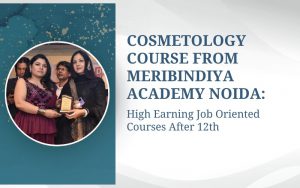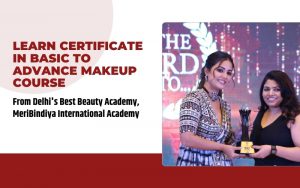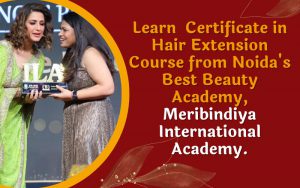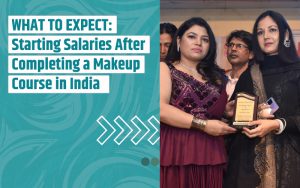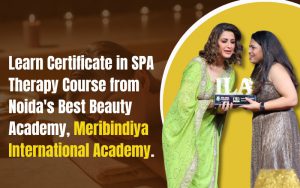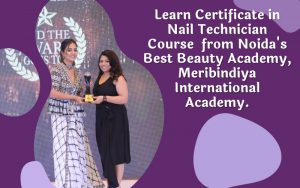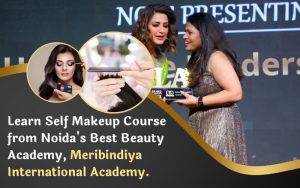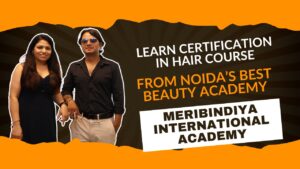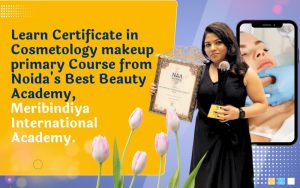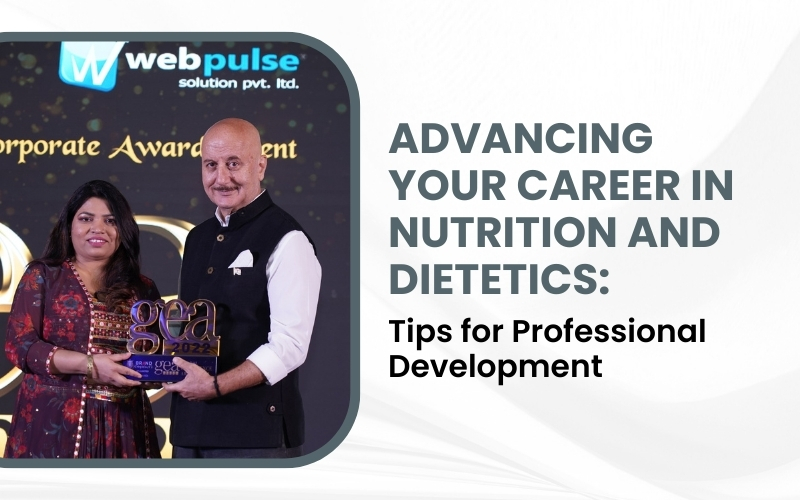Nutrition and dietetics are fields that have grown in popularity as people have become more health-conscious. Anyone who has an interest in food and its effect on our bodies can pursue this career path.

In order to advance your career in nutrition and dietetics, however, you’ll need to understand the basic requirements for becoming a registered dietitian or nutritionist. You’ll want to make sure your degree program includes courses like those listed below:
You can pursue this degree part-time or full-time.
You can pursue this degree part-time or full-time. If you are already working in the field, it may make more sense for you to pursue your degree on a part-time basis so that it does not interfere with your career advancement opportunities. If this is the case for you, consider pursuing an online nutrition degree so that it’s easy for you to go back and forth between work and school.
Certificate Course in Eyelash Extensions and Eyebrow Tinting
If earning your nutrition and dietetics degree in traditional classroom settings is more appealing to you, then taking classes at night or over weekends will allow for a good balance between work and study. Be sure that whatever option works best for your schedule allows enough time off from class so that when exams roll around, everyone has enough time on their hands (and brain) without worrying about having other responsibilities looming over their heads as well!
You can study nutrition and dietetics in undergraduate school, graduate school or online.
You can study nutrition and dietetics in undergraduate school, graduate school or online. The choice is yours.
If you want to take classes at a traditional campus-based institution, look for programs that offer flexible schedules so you can work around your work schedule. Some schools even offer online courses that allow students to earn their degrees without having to relocate.
London Pride Makeup Brushes Review
Online nutrition and dietetics degree programs are also an option for those who cannot attend traditional classroom settings due to time constraints or other factors such as distance from home or family obligations such as caring for children or elderly relatives. Online programs are less expensive than those offered on campuses because they don’t require building costs associated with constructing new buildings (or renovating old ones).
It’s important to enter the field with a solid foundation of knowledge and skills.
It’s important to enter the field with a solid foundation of knowledge and skills. If you’re new to the food and nutrition course, here are some basics:
- Nutrition is the study of food and how it affects your body. It looks at what we eat, why we eat it, how much we should be eating, where our food comes from (local vs. global), and even how our environment affects us (think climate change). This can apply to both humans and animals!
- Nutritionists use their expertise in this area to help people make healthier choices when selecting meals or snacks; they may also provide guidance on what vitamins or minerals might be missing from your diet based on your lifestyle choices like exercise habits or other factors such as age or gender identity/expression/ presentation .
KNOW EVERYTHING ABOUT THE NAIL ARTIST CAREER
Courses that teach you how to work with patients who have special needs are often required in nutrition and dietetics courses.
Learning how to work with special needs patients is an important part of your education. Dietitians are often required to be trained in working with patients who have eating disorders, diabetes, heart disease or other medical conditions that can interfere with their ability to eat well on their own.
In addition to taking courses that teach you about nutrition for people with specific health issues (like diabetes), you may also need to take courses that teach you how best serve those patients as well as provide counseling and support services if needed. MeriBindiya offers this kind of training that allows dietitians who want careers in hospitals or clinics where they work directly with these groups of people get ready for what they’ll face when they enter the workforce after graduation
Practical experience is an important part of your education in nutrition and dietetics
As you’re gaining your education in nutrition and dietetics, it’s important to also gain practical experience. A great way to do this is through an internship program or externship opportunities outside the university setting.
10 Best Home Remedies To Make Your Nails Shiny And Healthy
As a student, you can take advantage of these learning opportunities through internships at hospitals or other institutions that offer food services; this will give you hands-on experience working with clients who need assistance with diet modifications for health purposes such as weight loss or diabetes management. You could also volunteer at local community centers or food banks where people come together to share resources with one another–this type of environment will be ideal for practicing your communication skills while helping others make healthy choices about their diets!
Consider volunteering at local community centers or food banks so you gain valuable experience working with individuals on a daily basis.
Volunteering is an excellent way to gain valuable experience working with individuals on a daily basis. It will also help you decide if you want to pursue a career in the field, as well as build your network of professional contacts.
If you’re interested in volunteering at local community centers or food banks, look for opportunities that allow you to work directly with clients. This could include helping them prepare meals during lunchtime or assisting with nutritional counseling sessions after school hours.
Becoming a Consultant Dietitian: Advising Individuals and Organizations
A nutrition degree can be a stepping stone into many different career options in healthcare
A nutrition degree can be a stepping stone into many different career options in healthcare. You may find yourself working in hospitals, schools, retirement homes, community centers or even private practice offices. Your focus will depend on the type of job you want to pursue and the type of setting you want to work in. Here are some examples:
- Clinical Nutrition: This involves working directly with patients who have special medical conditions such as diabetes or heart disease , as well as those recovering from surgery or injury . You’ll help them manage their diets while they’re recovering so they can get back on their feet faster than usual (or at least not hinder their progress).
- Community Nutrition: This position focuses on educating members of communities about healthy eating habits so everyone benefits from better health outcomes overall . For example if there’s an obesity epidemic happening within one neighborhood then this could lead down several roads including educating people about how much exercise is needed per day based off age/weight etc., finding ways for families within said area access affordable fresh produce year round without having go far out into suburbia where prices tend toward high-end supermarkets mostly frequented by wealthy families…etc., etc., I’m sure you get my point here!
The Role of Nutrition in Pediatric Health: Careers in Pediatric Nutrition
Conclusion
Now that you’ve completed your degree, it’s time to get started on your career! You can begin by looking for opportunities at local hospitals or healthcare organizations. These types of organizations typically offer part-time or volunteer positions that allow you to gain valuable experience in the field before applying for full-time jobs with benefits packages and other perks.
If you are passionate about having a career in beauty industry and are looking forward to enroll in a professional beauty courses that include makeup, nail art, cosmetology, hair stylist, hair dresser, micro blading and much more get in touch with MeriBindiya International Academy. Enroll in our beauty courses that best suits your interest and kickstart your career in the beauty industry.
Careers in Nutrition Education: Teaching Others About Healthy Eating Habits
For more details
MERIBINDIYA INTERNATIONAL ACADEMY


